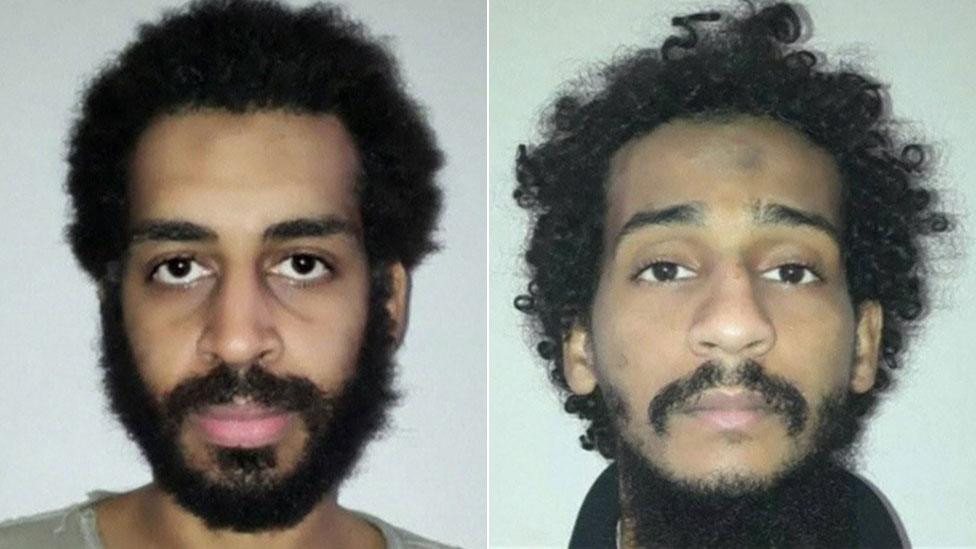Turkey Syria offensive: Heavy fighting on second day of assault
- Published
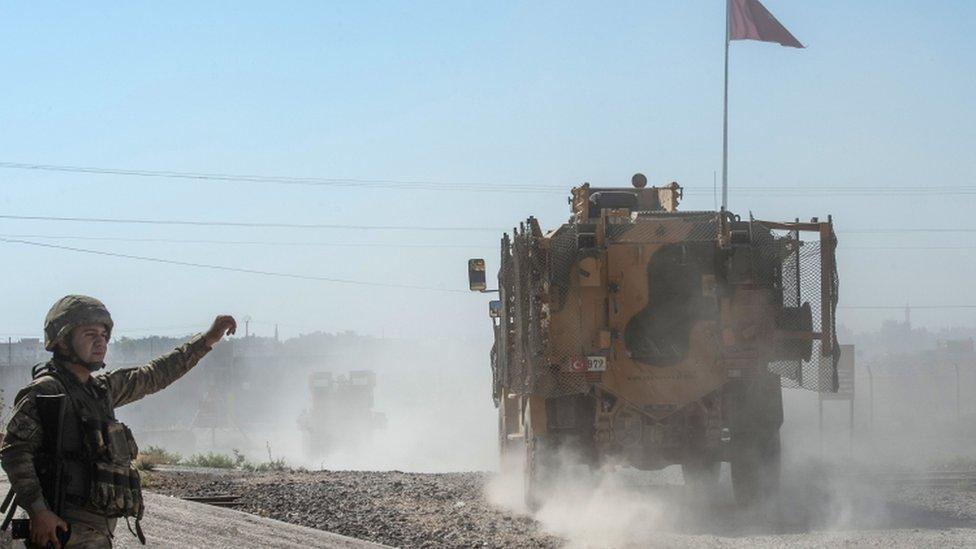
Turkish-backed rebels from the Free Syrian Army, pictured here crossing the border into Syria, are also involved in the offensive
Heavy fighting is reported in northern Syria on the second day of a Turkish offensive into Kurdish-held areas.
Turkey says it has seized a number of designated targets and killed dozens of Kurdish militants.
Tens of thousands of people are reported to be fleeing their homes, and Kurds report several civilian deaths.
Turkey says it wants to create a "safe zone" cleared of Kurdish militias which will also house some of the millions of Syrian refugees it hosts.
The long-planned Turkish offensive began after President Donald Trump withdrew US troops from the area, which has been held by the Kurdish-led Syrian Democratic Forces (SDF). The SDF have been key US allies in the battle against the Islamic State (IS) group but Turkey regards their dominant Kurdish militias as terrorists.
Many in the US, including some of Mr Trump's Republican allies, saw the withdrawal as effectively giving a green light for Turkey, although Secretary of State Mike Pompeo on Wednesday denied this. The SDF said they had been "stabbed in the back".
Mr Trump tweeted on Thursday that he was trying to end "endless wars" but added: "I say hit Turkey very hard financially & with sanctions if they don't play by the rules! I am watching closely." He also said he was "talking to both sides".
The offensive has drawn international condemnation. The UN Security Council is due to discuss it on Thursday at the request of its current five EU members - the UK, France, Germany, Belgium and Poland.
One major concern for the international community is the fate of thousands of suspected IS prisoners, including many foreign nationals, being guarded by Kurdish-led forces in the region.
Turkey's President Recep Tayyip Erdogan has strongly defended the incursion, threatening to send the Syrian refugees it hosts to Europe if the Turkish offensive is described as an occupation.
What is happening on the ground?
The Turkish-led offensive has struck between the towns of Ras al-Ain and Tal Abyad in the central area of Syria's border with Turkey. A number of villages east of Tal Abyad have been captured.
Turkish-backed Syrian rebels from the Free Syrian Army have also been involved in the fighting. A spokesman for the rebels said Ras al-Ain and Tal Abyad had been surrounded.


The SDF said there had been heavy attacks by Turkish planes and artillery on Ras al-Ain, with casualties among civilians.
Mr Erdogan said 109 militants had been killed, injured or captured in the initial fighting. The SDF said the figure was an exaggeration.
Some residents began to flee as smoke rose over the town of Ras al-Ain
The UK-based monitoring group, the Syrian Observatory for Human Rights, said at least 16 SDF fighters had been killed and dozens more injured.
An SDF Twitter account said an attack by Turkish forces east of the Jalab river had been repelled, with three military vehicles destroyed and 22 enemy combatants killed.
The Kurdish Red Crescent said at least seven civilians had so far been killed, two of them children, and at least 19 more critically injured, including four children.
The International Rescue Committee aid organisation said that 64,000 people had reportedly fled their homes and if the offensive continued that could surpass 300,000.
Kurdish authorities accused Turkey of shelling a prison holding IS inmates in Qamishli in the east of the border region in a "clear attempt" to help them escape.
The BBC's Orla Guerin also says that at least three rounds of what appeared to be retaliatory Kurdish artillery fire hit the main street of the Turkish town of Akcakale. Two people, including a Syrian baby, were reportedly killed.
What resistance can the Kurdish-led forces offer?
The SDF currently number about 40,000 fighters, with tens of thousands of others in parallel Kurdish security services, Kurdish sources say.
The US joint task force on operations against IS in Iraq and Syria describes them as "tenacious fighters with a degree of basic military training to function as infantrymen".
But they are deficient in heavy weaponry that could be used against tanks or aircraft, though some units may have anti-tank missiles.
In operations against IS, they relied on close coalition air support but in the flat, open country of Syria's northern border they will be vulnerable to air and artillery attack.
Turkey considers the Kurdish YPG militia - the dominant force in the SDF - an extension of the banned Kurdistan Workers' Party, which has fought for Kurdish autonomy in Turkey for three decades.
Trump: Kurds "didn't help us in Second World War"
How is the incursion affecting the IS situation?
The SDF say they are holding more than 12,000 suspected IS members in seven prisons, and at least 4,000 of them are foreign nationals. The exact locations have not been revealed, but some are reportedly close to the Turkish border.
Inside the camp of IS families in Syria
Two camps - Roj and Ain Issa - holding families of suspected IS members are inside the "safe zone". It is unclear whether the Kurds will continue to guard the prisons as fighting breaks out.
The US military says it has taken custody of two British detainees notorious for their roles in an IS cell that tortured and killed nearly 30 Western hostages.
The two men, El Shafee Elsheikh and Alexanda Kotey, were part of a British cell nicknamed The Beatles. They have now been removed from a prison run by the Kurdish-led militia in northern Syria.
A senior Kurdish official also told the BBC that some foreign IS prisoners would be relocated within north-eastern Syria.

Are you in the affected area? If it is safe to do so contact us by emailing haveyoursay@bbc.co.uk, external.
Please include a contact number if you are willing to speak to a BBC journalist. You can also contact us in the following ways:
WhatsApp: +44 7756 165803, external
Tweet: @BBC_HaveYourSay, external
Send pictures/video to yourpics@bbc.co.uk, external
Text an SMS or MMS to 61124 or +44 7624 800 100
Please read our terms of use and privacy policy
- Published10 October 2019
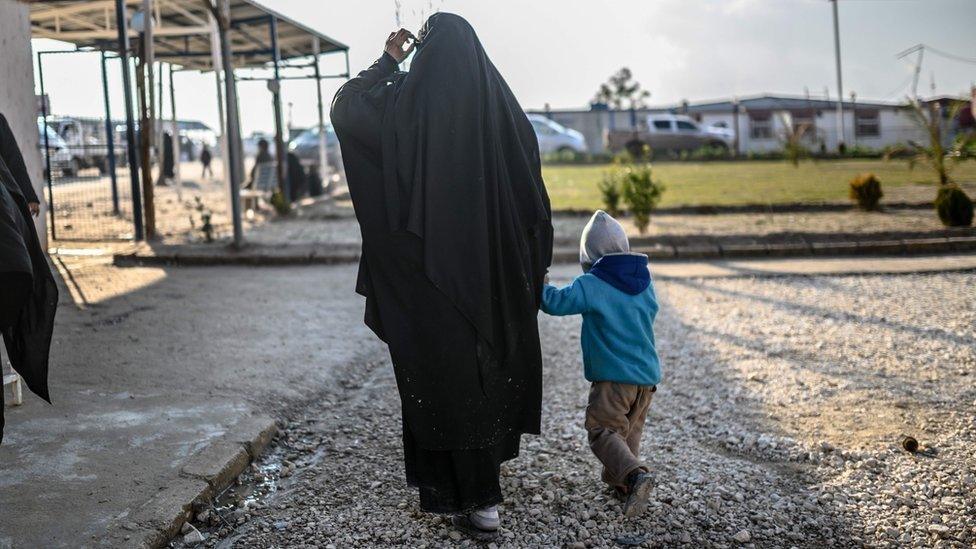
- Published10 October 2019
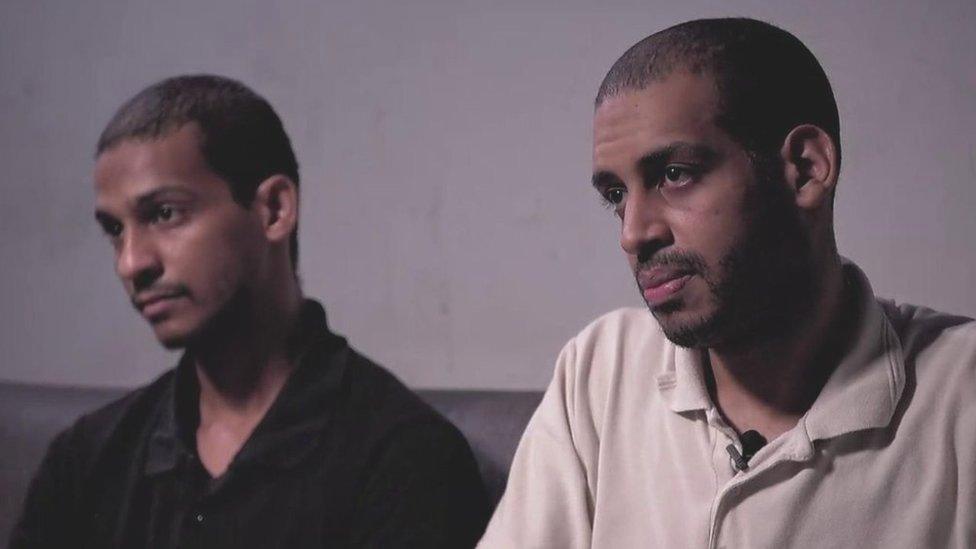
- Published9 October 2019
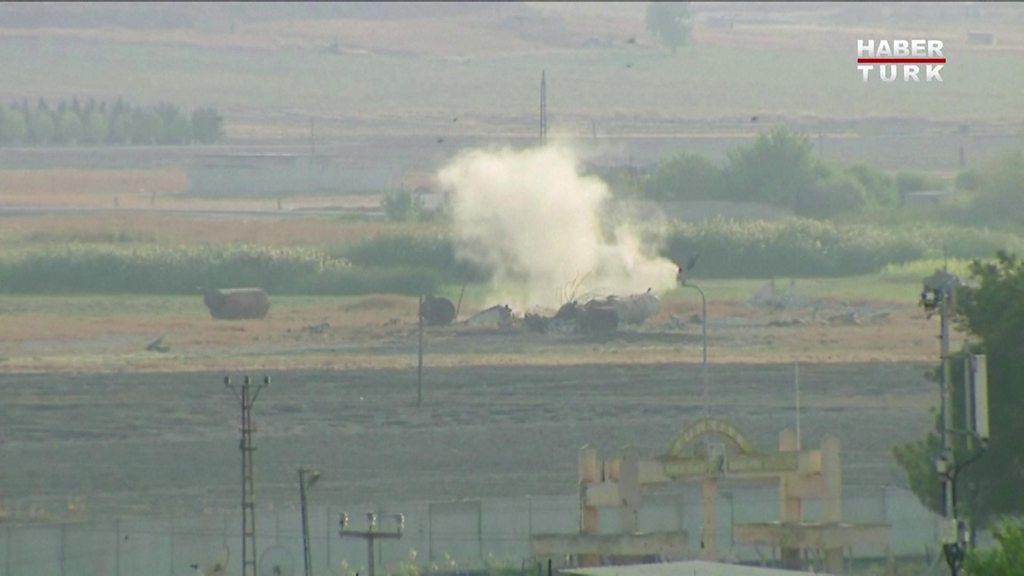
- Published2 February 2018
- Published30 July 2019
